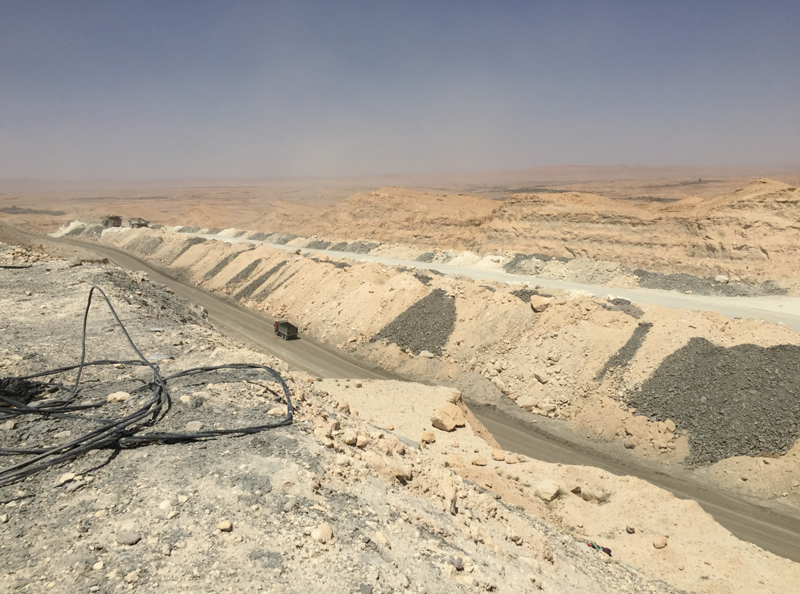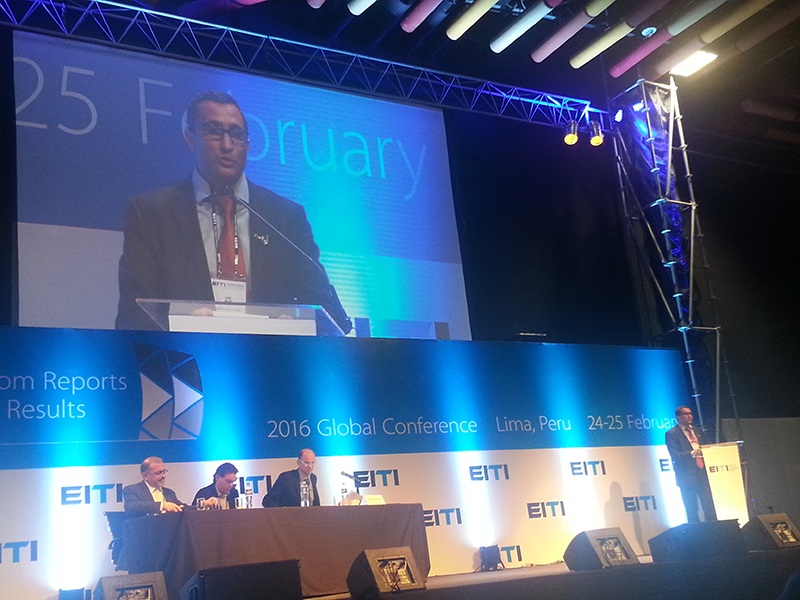
Tunisia EITI Commitment Big Step on Long Path To Improved Governance
For years, Tunisia’s extractives sector was viewed with skepticism. Information on reserves, the rights allocation, resource revenues and their management was particularly scarce.
But during the last two years, Tunisia has made major moves toward more openness and disclosure, reflected in the creation of an open data portal, as well as contract disclosure and open contracting commitments. These achievements were recently highlighted by Tunisia’s commitment to join the Extractive Industries Transparency Initiative (EITI) in its new Open Government Partnership (OGP) national action plan. (Eighteen other countries, including the U.S., U.K. and Mexico, have linked their OGP and EITI commitments.)
Why does Tunisia need EITI?
Extractive sector opacity has heightened tensions in Tunisia. In 2013, a fervent call for more transparency emerged. Tunisians took to the streets, demanding access to information on the natural resources sector, which many of them consider corrupt. The campaign lasted for months and led to violent clashes between security forces and protestors. The massive mobilizations did not achieve any notable change: stakeholder dialogue was limited.
Phosphate mining in Gafsa, Tunisia
EITI serves as an enabling tool for diverse stakeholders, fostering accountability and better resource management. In Tunisia, the initiative could enhance regional development, a pillar of the new constitution. Aside from boosting public access to knowledge, transparency encourages the business community. It will also offer a platform for discussions around possible reforms. Recently appointed head of government Youssef Chahed has stated that good governance and fighting corruption are top of his agenda.
From statements to commitments
Former head of government Hamdai Jebali was the first senior Tunisian official to signal intent to join EITI. That was in June 2012.
In subsequent years, civil society organizations (CSOs), members of parliament and journalists advocated for EITI accession in a more structured initiative in different regions. In November 2015, senior officials visited the EITI international secretariat in Oslo to study the feasibility of the initiative in Tunisia. Following the visit, Minister of Energy, Mines and Renewable Energy Zakaria Hamad reiterated intentions to join EITI in the media and at a parliamentary hearing in December 2015.
Kais Mejri, a Tunisian government official, speaks at the EITI global conference.
At the EITI global conference in Lima, Peru, in February, Kais Mejri, the head of the governance unit at the ministry, said that “Tunisia is the unique successful story of the Arab spring, and I’m quite sure that it will be the spark of new ‘transparency spring’ in MENA region, moving from reports to results.”
Civil society kept the EITI momentum going, both on the ground and during the discussions around the OGP national action plan. The Tunisian government’s decision to incorporate EITI into the plan is a strong step toward openness and better governance. Encouragingly, the government set clear steps going forward: it will appoint a national champion who will lead the initiative, which will be followed by the formation of the multi-stakeholder group (MSG) and the preparation of a work plan for meeting its commitments.
Recommendations for EITI implementation
In order to meet these commitments, we suggest the following recommendations based on international best practices:
An appropriate champion is key to the initiative’s success. Tunisia’s EITI initiative champion should be a senior level, influential and consensual civil servant. The champion must meet two main criteria: the power to influence and make bold decisions; and availability to monitor and oversee the process in an effective way—essentially, the time to do the job. Experiences in other countries shows appointing a leader who does not meet these criteria might lead to significant, but avoidable difficulties.
A representative MSG is essential. International experience shows a representative MSG isn’t just a formal requisite to be met—it’s crucial for the success of the process. Generally, there are no major issues when selecting government and company representatives in this group. However, some countries fail to reach an official agreement between CSO representatives, which leads to blockages. For Tunisia, the debate among sector-focused CSOs has already begun. This helps identify a set of criteria and establish a process to select the CSOs, a starting point for the government while finalizing the terms of reference of the MSG.
The work plan is a collaborative process. The MSG drafts and approves a work plan for addressing transparency gaps and developing a related reform program. The members of the MSG should reach a mutual understanding of what to include in the work plan. Disagreements can impede its final approval. Informal meetings are helpful to explore existing agreements and express dissent on included issues.
Developing funding sources is important. Tunisia’s potential partners are ready to technically or financially support EITI implementation. In the past year, work by the governance unit of the Ministry of Energy, Mines and Renewable Energy has aimed to identify necessary funds to cover EITI. The new cabinet can build on those efforts to start implementation as soon as possible.
Tunisia’s natural resource governance has seen improvements in recent years and EITI could help maintain forward momentum if it is implemented efficiently. EITI remains an enabling tool—its success depends on the willingness and efficiency of all involved stakeholders.
Wissem Heni is a Tunisia program officer with the Natural Resource Governance Institute (NRGI). Wiem Melki is NRGI’s Tunisia associate. Carlos Monge is NRGI’s Latin America director.


